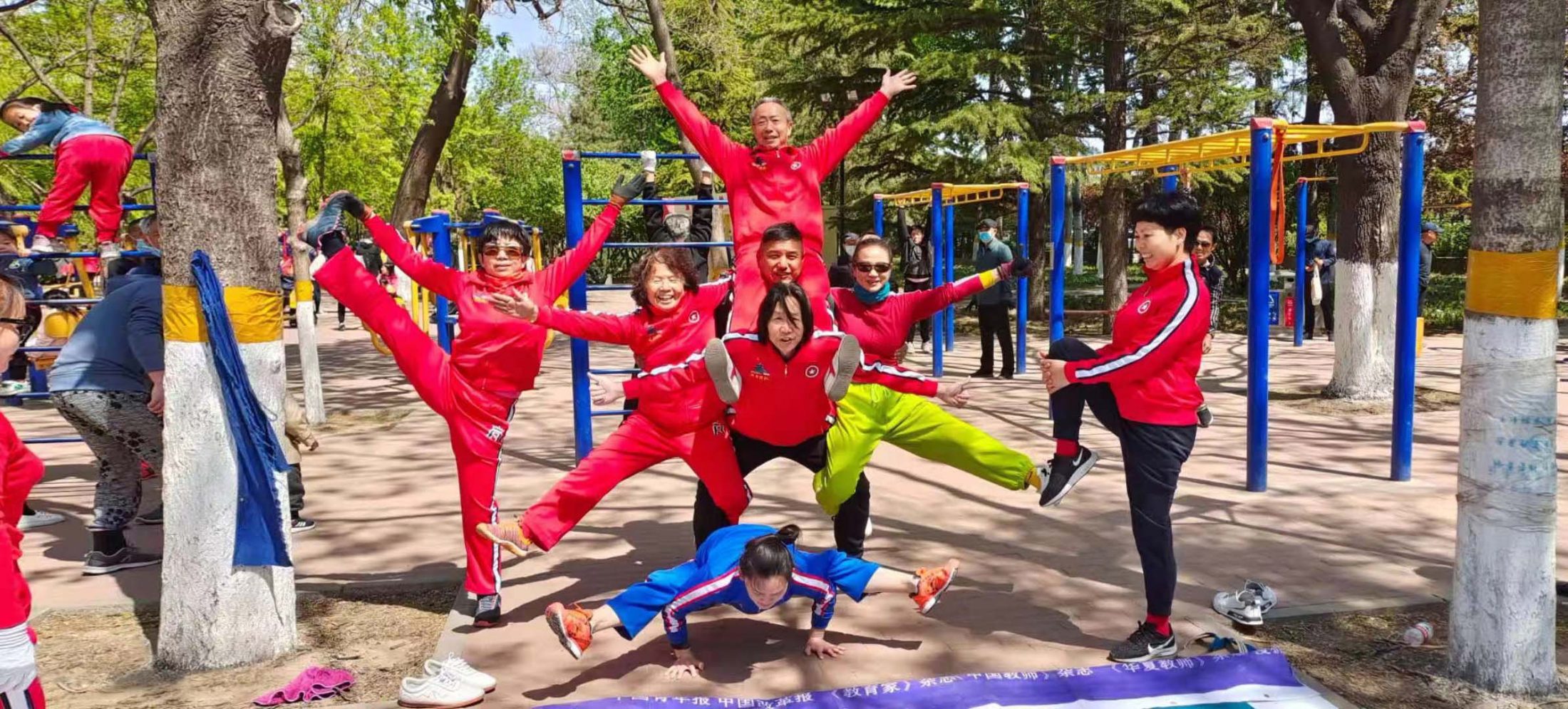
Age is Nothing but a Number
As China’s residents get older, millions are facing the challenges of aging head-on by keeping fit. Combined with their increased spending power, this could be a boon to the fitness industry.
“Life begins at 40” went the old adage. But today, in China, millions of residents are now starting to live their best lives at 60, 70, 80 and beyond.
Wang Deshun recently captured the global spotlight as a fashion model, becoming known as “China’s coolest Grandpa.” Deshun started his intense fitness regimen at the age of 50, began riding horses at 65, racing motorcycles at 78 and today, at the age of 85, he’s just earned his pilot’s license.
I still have dreams and pursuits, I can do now what I could not do in the past, and that is what rebirth should be about.
Wang Deshun, fashion model
Meanwhile, in Shanghai, 68-year-old Chen Jifang goes to the gym for two hours a day to tone her body and records her training sessions for her more than 400,000 global Tik Tok followers. This grandma claims that other exercises just can’t compare to the workout she receives from lifting weights. “No matter how hard you square dance, you just can’t reach my current condition,” says the grandmother. “My training is targeted.”
There are tens of millions of others in China just like them who are recognizing the benefits of being active and staying fit. They long for the great outdoors and enjoy being part of a sporty group. 67-year-old Beijing resident Wang Jixi started a fitness group in 2018 and is known for doing intricate headstands in the city’s Temple of Heaven park. Not to be outdone is 73-year-old teammate Li Jianlian who shows off her headstand abilities, believing it helps prevent neck wrinkles.

It’s believed there are as many as 150 million people between 60 and 69 years old across China, making it the largest “silver generation” population in the world. 30% of Shanghai residents alone are now believed to be part of this age group, with other mainland cities facing similar ratios. Many in this demographic are health conscious; 76 percent surveyed in this group do some form of regular exercise and 39 percent take dietary supplements and vitamins. By 2050, a Global Health and Aging Report by the World Health Organization estimates that the silver generation will reach 330 million people in China. Coupled with increased spending power, which is expected to reach USD 16.4 trillion, almost a third of the country’s GDP. But getting them to part with their money could be difficult.
“It’s like throwing money away,” says Qin Haiqin, the leader of a Beijing park-based dance squad, when asked about paying for dance classes. “We have been learning from our teacher for free.” Qin is not the only one that feels this way.

Though there are an estimated 50,000 fitness clubs across the country, many of the silver generation are reluctant to enter long-term contracts, or are scared of getting injured on complicated exercise machines.
Many seniors also prefer to go with what they already know. Erqi Gym in Southwest Beijing may not be much to look at: it’s housed in an old bicycle shed and the equipment is battered and rusty, but it’s extremely popular with the over 60s. They don’t just exercise; they come to socialize, and they’re willing to pay to do it. The club’s manager, Xu Wei, says, “Some members left for expensive gyms in downtown areas but later came back because they missed old friends here,”. Members pay a USD 46 membership fee to Erqi Gym to help cover electricity and water.
While Erqi Gym’s success lies in its position as a social hub, the rest of the fitness industry must find new solutions to encourage seniors to pay for health and fitness services.
“The Chinese elderly are more willing to spend money on medicine or health products,” says Yu Chenjie, marketing director of Shangti Fitness Equipment. The company works with residential communities to set up gyms for senior citizens.

China’s fitness industry is looking at new ways of attracting the silver generation that combines value, camaraderie, and innovation. Companies like Shangti Fitness Equipment have set up seniors-only gyms which offer professional coaching, health guidance, fitness testing, and more. Private initiatives like these are further supported by the government. In 2019, officials launched the Healthy China Action Plan 2019-2030 to promote health and fitness among the general population. The program has allowed agencies such as the Municipal Sports Bureau in Shanghai to distribute coupons to seniors that entitles them to attend gym sessions for just USD 11 a month.
The plan also sees the government constructing more gyms in communities with aging populations. The facilities include equipment tailored to the elderly and regular health check-ups following each workout session. “It’s a great platform (for us) to socialize. Else, it’s just my wife and I at home every day. How much can we talk about?” jokes 80-year-old Huo Guanmin.

Beyond that, the country’s fitness industry has been embracing technology to reach an increasingly tech-savvy silver generation. On Keep, the most downloaded fitness app in China, social seniors have been uploading their own workout regimes targeted at their peers. The app helps users build communities with like-minded individuals.
We’re facing a consumption upgrade as more Chinese seniors pursue a higher quality of living.
Duan Mingjie, CEO of AgeClub
While gyms and businesses rush to meet the fitness needs of a burgeoning silver generation, China’s seniors have stayed true to the proverb “health is wealth”. The result is a thriving fitness industry and a healthy, active senior population enjoying its golden years. As 80-year-old fitness fan Yang Hongzeng wisely shares, “A healthy body is basic for pursuing dreams”.
MORE STORIES
CLICK TO FIND OUT MORE






